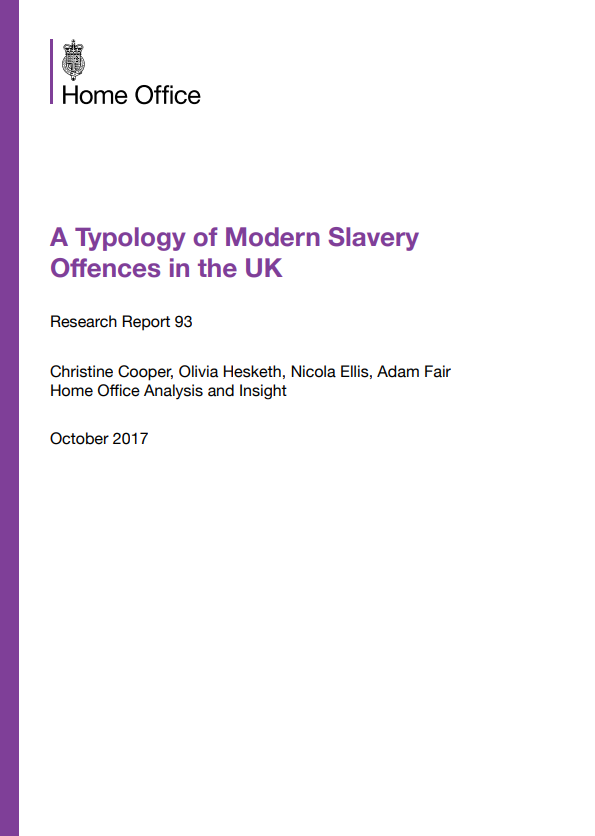Authored by: Christine Cooper, Olivia Hesketh, Nicola Ellis, Adam FairHome Office Analysis and Insight
Executive summary
This report presents findings from research to create an evidence‐based typology of modern slavery offences in the UK. Modern slavery is an umbrella term that encompasses the offences of human trafficking and slavery, servitude, forced or compulsory labour, as set out in the different anti‐slavery legislation in place in the four UK countries (England, Wales, Scotland and Northern Ireland). Modern slavery frequently involves multiple victims, offenders and places, and it is often hidden and involves or takes place alongside a wide range of abuses and other criminal offences. The Home Office estimated there were 10,000–13,000 potential victims of modern slavery in the UK in 2013.
Aim and approach
This research sought to devise a typology of modern slavery offences to improve our understanding of the different ways that modern slavery manifests in the UK and to inform tailored policy and operational responses.
The typology is based on analysis of detailed data on 328 confirmed cases of modern slavery in the UK. As modern slavery is often a hidden crime, these data sources are partial and only cover modern slavery that has come to the attention of the authorities. However, this approach was considered appropriate given the exploratory nature of this research. The typology was refined through consultation with experts including the Joint Slavery and Trafficking Analysis Centre, academics, non‐governmental organisations (NGOs) and frontline staff such as police officers.
Findings
The typology identified 17 types of modern slavery offences in the UK (see figure below). It sets out the characteristics of the victims, offenders and offences involved for each type. In particular we looked for how members of law enforcement, other statutory agencies, NGOs and communities may recognise the exploitation and tackle the different manifestations of the crime. Some cases of modern slavery may span multiple types in the typology. This research did not estimate the prevalence of each type of modern slavery.

